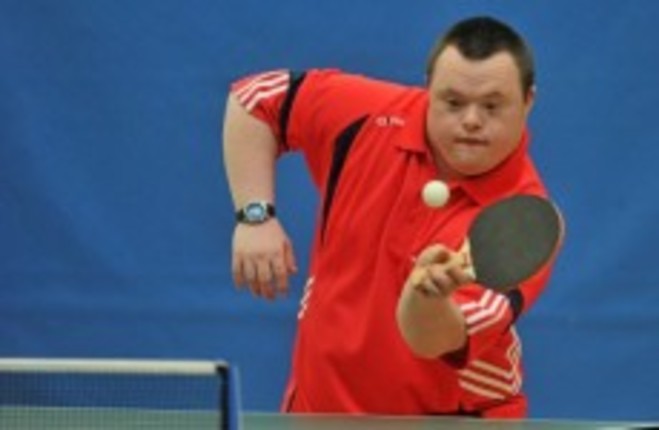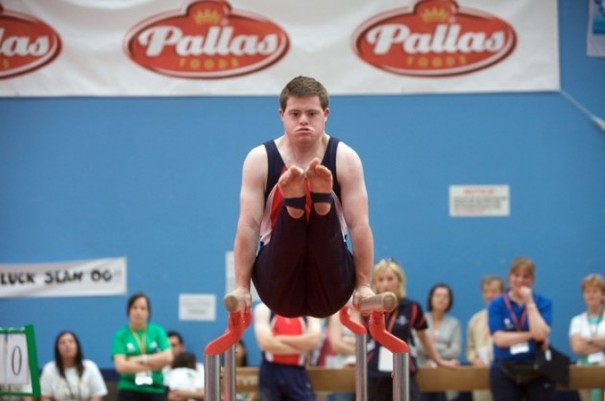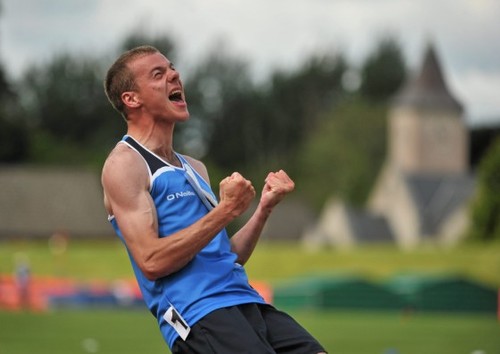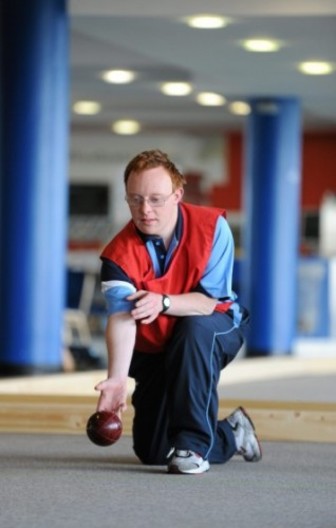IF YOU’RE OUT and about today you may notice volunteers doing their thing for Special Olympics Ireland’s annual collection day.
But what exactly is the Special Olympics? Here’s everything you need to know.
There are 11,000 athletes involved in Special Olympics throughout the island of Ireland. They train in over 400 community-based clubs and are, vitally, supported by a team of 25,000 volunteers.
The Special Olympics World Summer Games take place in Athens in June. So get those buckets rattling. As David O’Doherty almost sang, here’s some FAQ for the SOI.
Q: What’s the difference between Special Olympics and Paralympics?
A: It’s quite straightforward. Special Olympics provide competition for athletes with an intellectual disabilities while the Paralympics provides competition opportunities for athletes with a physical or sensory disability ‘at an elite performance level’.
Q: What are the different types of sport on offer in Special Olympics Ireland?
A: There are 14 sports plus what’s called a Motor Activities Training Programme. The 14 on offer are: alpine skiing, aquatics, athletics, badminton, basketball, bocce, bowling, equestrian, football, golf, gymnastics, kayaking, pitch and putt, and table tennis.
Q: So the big games are this summer, how will Ireland’s athletes grouped for competition?
A: Athletes are classified for competition by a process called divisioning, which is the process which ensures that athletes compete with other athletes of similar ability. This is judged on ability, age and gender.
Q: Who can progress onto the next level of competition?
A: In order to progress from one level to another an athlete must have participated and been placed in the previous level of competition.
Q: How is it decided which athletes go to the next level of competition?
A: Advancement is the process by which athletes’ progress from one level of competition to the next in a four-year cycle.
Q. Does the quickest or best score only advance?
A: All eligible athletes, across all abilities, have an equal opportunity to advance to the next level of competition. Special Olympics offer the opportunity for every athlete, regardless of their ability, to participate in all levels of competition
Q: What is honest effort?
A: Good question, Bill. Honest effort is when every athlete/team participates to the best of their ability regardless of the level of competition. Honest effort applies in every Special Olympics competition but is applied differently in specific sports. In timed and measured events athletes who perform more than 15% better than a qualifying or submitted score there is an automatic DQ.
Q: So our athletes are preparing for their Athens trip. What kind of awards are they going to bring back for us?
A: As ever, gold, silver and bronze medals are awarded to those in first, second and third and place ribbons are also awarded to athletes finishing in fourth through eighth place. Let’s hope for what the papers call a ‘haul’ when it comes to medals this summer.



























